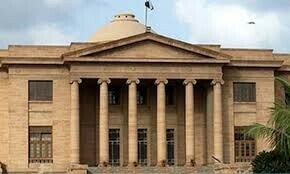HYDERABAD, Dec 7: The Sindh Abadgar Board (SAB) has called for a fresh study on technical aspects of the exiting Sukkur barrage by national and international experts and for building a new barrage.
Presided over by SAB president Abdul Majeed Nizamani, the monthly meeting held on Saturday demanded early beginning of the process because it would take a long time.
Discussing Sukkur barrage’s issue in detail, the meeting described the barrage as a state of art project and monument of engineering. At the time of its construction, some principles were laid down and departure from those guidelines/principles would affect its structure, the meeting said.
For instance, it said, those guidelines specified a discharge of around 11,000 cusecs each for Rohri and Nara canals. But this principle was violated because more than the required discharges were recorded in the past in these canals and other channels. Some estimates show that 18,000 to 19,000 cusecs of water was released in these two canals and likewise in other canals.
The meeting observed that soon after its construction, its engineers had divided land into four components of A, B, C and D with the first two categories selected for cultivation of crops and other two were left uncultivable for forest plantation and livestock’s pastures. But this principle was also violated, it said.
The meeting said that another principle that was not complied with was cultivation of 27 per cent of the land for Kharif crops in the commanded area and 54 per cent for Rabi. After inception of Pakistan, 100 per cent land was used for agriculture population.
The meeting said rice cultivation was banned in the Rohri canal’s command area and ever since rice crop was cultivated in area, the same land was hit by water-logging and salinity besides leading to maximum water usage for cultivation. This measure collectively put burden on barrage’s structure and under these circumstances its life was bound to reduce.
The meeting observed that since barrage was built on one of the large rivers of the world, it was affected not only by climatic changes but pressure of water. The barrage could not be compared with Eiffel Tower or London bridge which had impact of weather conditions alone and that Sukkur barrage was not a bridge.
In view of these ground realities, the SAB said, it was apprehended that barrage’s life had been reduced and in case of any damage to it would cause colossal loss to the economy of Sindh and Pakistan given the fact that barrage cultivated eight million acres of land.
The meeting said that besides these issues, embezzlement in all off-taking canals of barrage was a separate story that had also affected and was harming the barrage structure.
The SAB is of the view that the government should start planning right now and a technical study should be initiated by national and international experts for building a new barrage and since this required time, therefore, the existing barrage’s maintenance or rehabilitation should also be given due consideration.
The meeting said the task of construction of a new barrage or maintenance of the existing one should be given to honest engineers.
Discussing prices of wheat and sugarcane crops, it said that during the last 25 to 30 years, it was for the first time that support price of two major crops was not announced and last year’s rates remained unchanged i.e., wheat at Rs1,200 and Rs172 for sugarcane.
The meeting termed it a great injustice with growers who continued their contribution to ensure food security despite devastating rains, floods and lawlessness. They also contributed substantially to foreign exchange reserves due to export of their crops, it said.
The meeting said that the cost of inputs like seed, fertilizer, oil, electricity, pesticides and farm labour had increased by 20 to 25 per cent. Prices of these inputs have increased by 20 per cent internationally.
The meeting said that in view of these facts, it was impossible to stop smuggling of wheat and sugarcane to India, Iran, Afghanistan and other states, which might cause crisis of wheat.
This state of the affairs would compel farmers to grow crops other than wheat and sugarcane and this would ultimately force government to import sugar and wheat to avoid their shortage.
The meeting said the country was already indebted to the IMF and World Bank, therefore, the government should review its policies and fix wheat’s support price at Rs1,450 per 40kg and ensure its transparent procurement.
Price of cane should be fixed at Rs200 per 40kg with immediate payment to growers. Rates of agriculture inputs and facilities should be brought at part with other countries’ economy.
The meeting said the irrigation department was facing degradation, therefore, the government’s resources should be spent on the irrigation and agriculture sectors to boost economy.
If resources were diverted for creation of new districts, it would make Sindh most backward region and in that case the Sindh government would find it difficult to arrange money for building the Sukkur barrage, its maintenance, remodelling of canals of Sukkur and Kotri barrages, river dykes’ and irrigation network’s rehabilitation.
The meeting demanded that the irrigation department should be the first priority of the government; unproductive expenditure should be cut by 40 per cent; annual expenditures of the irrigation department should be published; all development works should be got executed after taking farmers’ organisations on board and third party evaluation should be conducted for targets given to the Sindh Irrigation and Drainage Authority for Nara, Ghotki and Left Bank canal circles.
The SAB also called for an inquiry into embezzlement of Rs8 billion in contracts and purchase of goods for river dykes’ rehabilitation.















































Dear visitor, the comments section is undergoing an overhaul and will return soon.